Dissident republican threat reaches new level
- Published
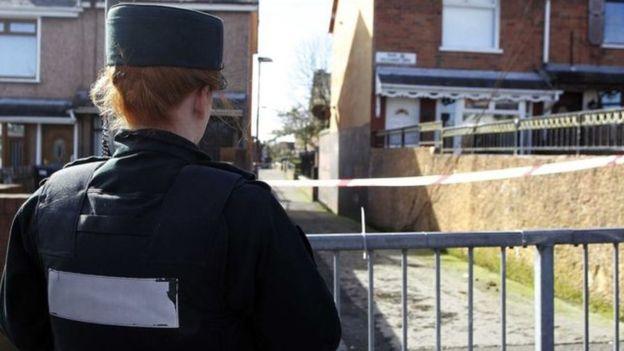
PSNI have described the range of the dissidents capabilities in recent times as deeply concerning
The escalation of the level of threat dissident republicans pose to potential targets in Great Britain means that the security service MI5 believes their capacity and capability has grown significantly.
The move follows years of briefings by the police and security sources which said that while dissidents had a high level of intent to mount attacks outside Northern Ireland, they lacked the capacity or capability to do so.
That has now changed.
The Police Service of Northern Ireland (PSNI) warned earlier this year that dissidents have shown a range of capabilities over the past 18 months which they described as deeply concerning.
These include the use of home made bombs, referred to by the police as Improvised Explosive Devices, improvised rocket launchers, close quarter shootings, and under vehicle bombs.
While the government announces updates on threat levels, the assessment is made by the security service MI5, with input from the PSNI.
This recalibration of the threat level clearly suggests they believe dissidents are actively planning to exploit their increased capabilities by exporting them to Great Britain, and that they have the capacity to do so.
No organisation was named in a written statement about the increased threat level by Home Secretary Theresa May, external on Wednesday, but it is understood this assessment reflects concerns about the activities of the group widely referred to as the New IRA.

Adrian Ismay was the 32nd prison staff member to be murdered in Northern Ireland because of his job
It was formed in the summer of 2012, from the amalgamation of a number of dissident organisations.
The group killed prison officer Adrian Ismay using an under car bomb in March.
In a statement to the BBC at the time it warned that further attacks would follow.
Increasing the threat level from "moderate" to "substantial" means the likelihood of an attack in Great Britain has gone up from "possible but not likely" to "a strong possibility".
It does not mean MI5 has intelligence which suggests that a dissident republican attack on a target in England, Scotland or Wales is about to take place some time soon.
If that was the case, the threat level would have been raised to "severe", which means an attack is regarded as "highly likely."
The threat level dissidents pose in Northern Ireland has been characterised as "severe" for just over six years.
"This does not mean the balloon has suddenly gone up," explained a well placed security source.
"Clearly there is an increased level of concern about the capacity of dissidents to mount attacks outside Northern Ireland, but there is nothing to suggest that they are in a position to do so at this time."
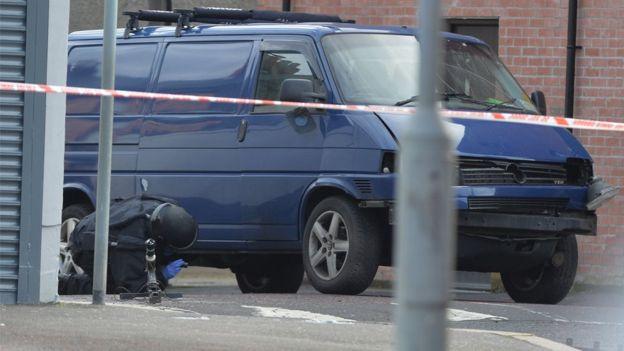
The PSNI previously issued warnings about the likelihood of dissident attacks in Northern Ireland in the run up to the 1916 Easter rising centenary
The government, MI5 and police will hope the public announcement about an increased threat level will have a deterrent effect.
Assistant Chief Constable Will Kerr, the officer who leads PSNI efforts to combat the dissident threat, said the announcement was "about increasing awareness and encouraging vigilance."
But the announcement also signals to dissident republicans that the security services are aware of their intentions, and will heighten their efforts to thwart them.
In addition to encouraging increased public vigilance, it is aimed at unsettling any dissident republican units planning attacks on individuals or buildings in Great Britain.
The decision to escalate the threat level in GB comes weeks after the PSNI issued a series of stark warnings about the likelihood of dissident attacks in Northern Ireland in the run up to the centenary of the 1916 Easter Rising.
At the time, senior police officers said there were "several hundred" active dissidents, and expressed "grave concerns" about their intentions, capacity and capability.
Those warnings and public statements about enhanced security measures to combat the enhanced threat appeared to have a deterrent effect as dissidents were not able to mount the attacks police said they feared.
- Published11 May 2016
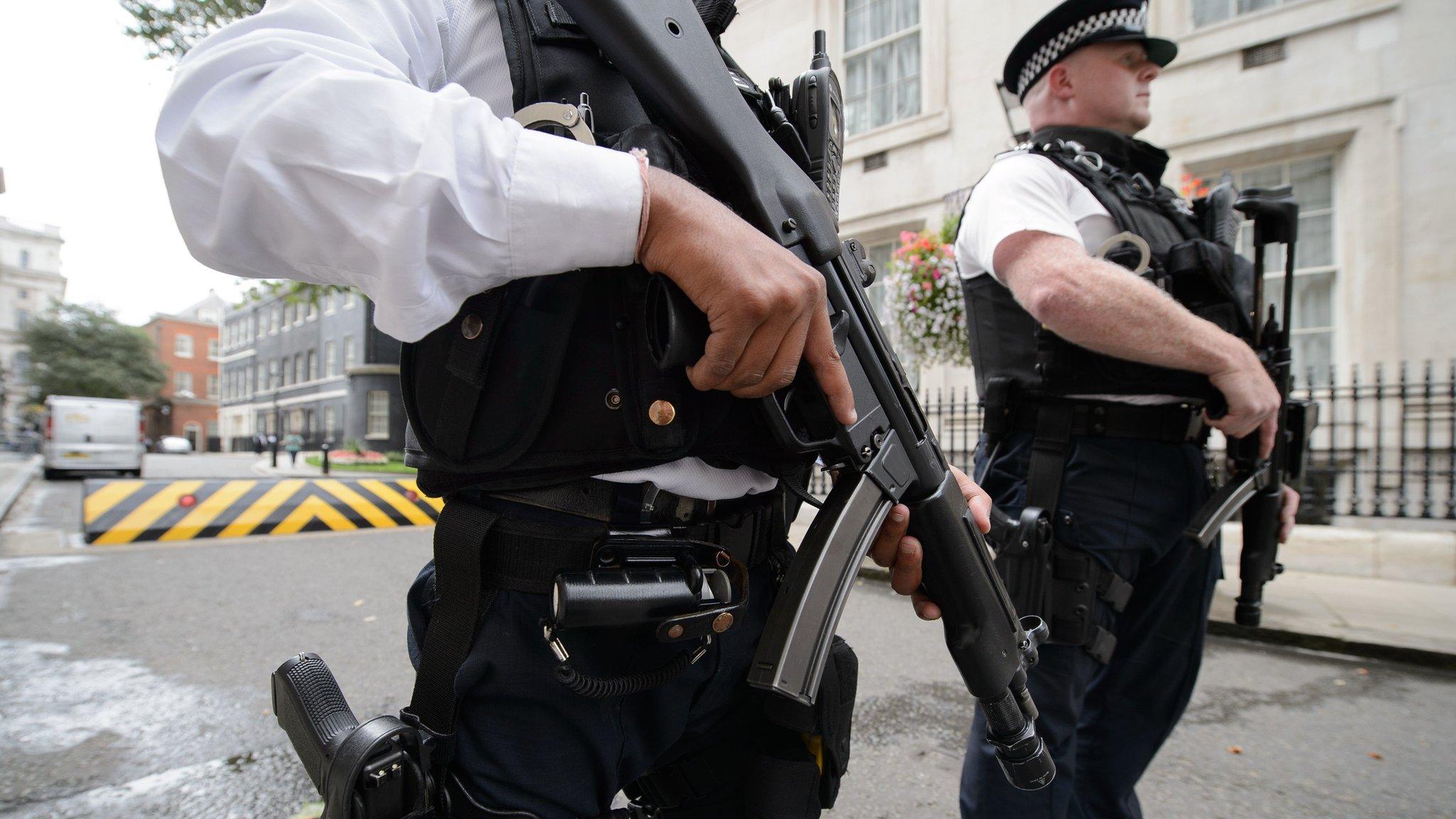
- Published14 August 2023
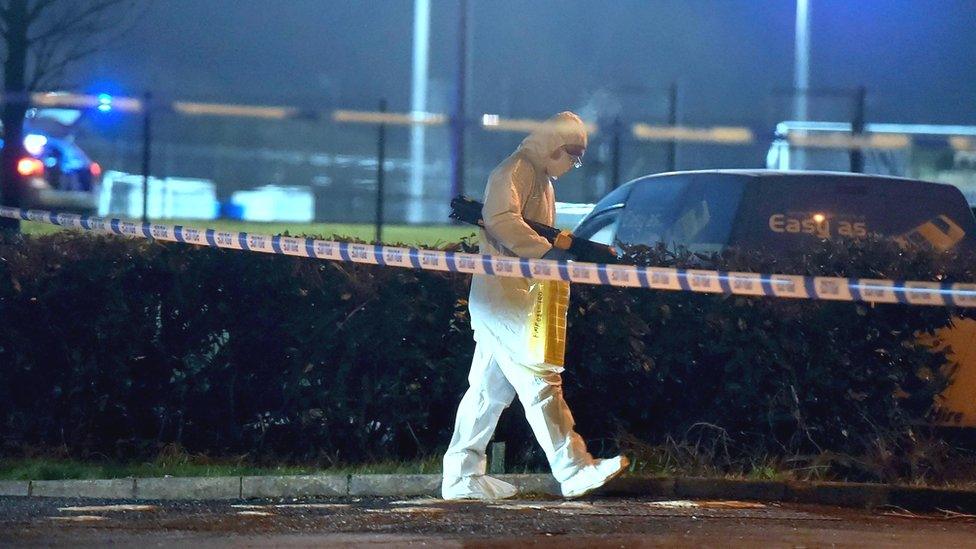
- Published16 March 2016

- Published24 October 2012
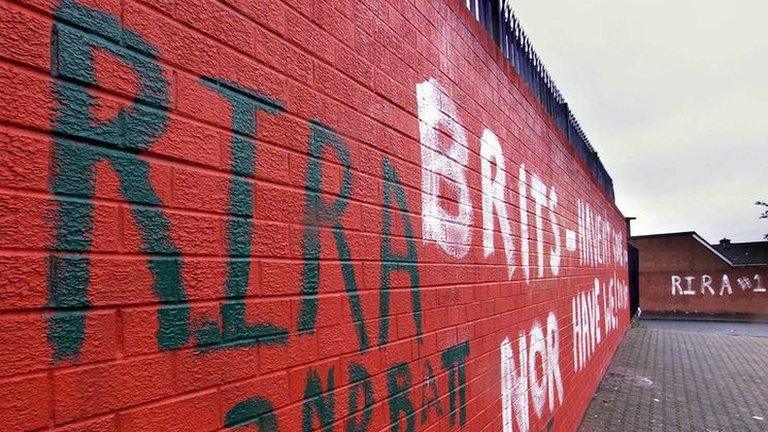
- Published12 July 2011

- Published25 September 2010
